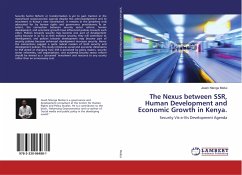This book offers an in-depth analysis of China's drive for common prosperity from an insider's perspective. While philosophers and economists have long debated issues of inequality and growth, and societies have evolved from industrial to post-industrial information economies, challenges related to poverty and inequality persist. Major European nations have transitioned from early capitalist societies to modern welfare states, yet similar issues remain unresolved. Professor Zheng Yongnian provides a unique insight into China's approach to addressing these challenges through the lens of common prosperity. Drawing on newly published materials and empirical research, this book contrasts China's development model with Western welfare states, elucidating both the rationale behind and the implications of these differences. This translated version of Professor Zheng's recent work, (originally published in Chinese), is an essential read for scholars and policymakers seekingto understand China's strategy for achieving common prosperity.
Bitte wählen Sie Ihr Anliegen aus.
Rechnungen
Retourenschein anfordern
Bestellstatus
Storno








